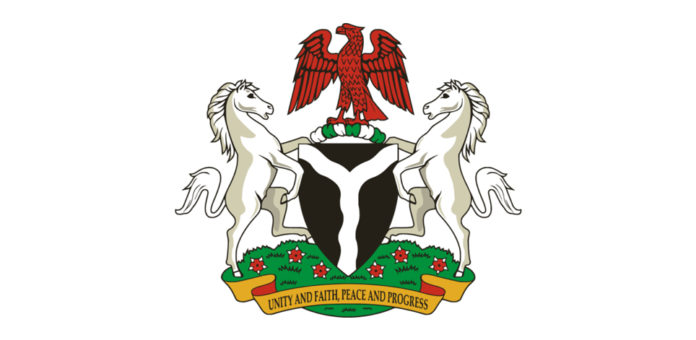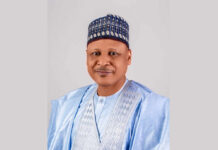BUILDING CIVIL SERVICE CAPACITY FOR NATIONAL DEVELOPMENT
By:
Iheoma-Hart Queenet
A Resident Information Officer in the Press & Public Relations Unit of OHCSF
Civil Service of any nation undoubtedly is the “engine” of the government. For a nation to be adjudged relatively good, its civil service must be upbeat in its performance. According to Governor Ifeanyi Okowa of Delta State, “Civil Service defines the character and content of any government. Civil Servants as key drivers of the image and structure of government’s operations are in the value chain of the public service to run a participatory governance process, which should enhance service delivery through professionalism and the building of a harmonious working relationship”.
Achieving ‘new civil service’ of our dream would mean redirecting the activities of government towards meeting the needs of its citizenry for the needed national development.
In the light of this, successive governments have tried to reposition the civil service to such an enviable status that can favourably compete with its counterparts in the rest of the world. Many policy reforms had in the past been put in place with varying degree of success. Such reforms include, Service Delivery (SERVICOM); Pension Reform; Public Procurement; E-payment; National Health Insurance Scheme (NHIS); Tenure system; Salary Review; Manpower Capacity Building to mention a few. These reforms have helped in lifting the civil service to a certain height and still counting.
Leveraging on these past reforms, the present administration, through the Office of the Head of the Civil Service of the Federation (OHCSF), has been working assiduously on a well-researched, well-structured and well-mapped out policy aimed at further revamping the civil service of Nigeria.
The present administration introduced the Federal Civil Service Strategy and Implementation Plan 2017-2020 (FCSSIP 2017-2020) geared towards improving quality service delivery of the civil servants thereby enhancing national development.
The OHCSF as an institution created to implement government policies and programmes has been working on the eight (8) priority areas of FCSSIP since 2017. These areas include: Re-design and re-launch of 3 core-training modules including Leadership Enhancement and Development Programme (LEAD-P); strategic sourcing of identified skills to bring in external talent to drive high-level impact; Performance management; salary review; establishment of innovation unit with the OHCSF; an EPIC culture transformation of the civil service; accelerate roll-out of the HR-module of IPPIS, human Resource Management software and establishment of an enterprise content management solution to digitize content (eg. Memos).
The OHCSF has exerted a lot of effort to ensure that the aims and objectives of the fore-going eight priority areas are achieved for the good of the service. The current Head of Service of the Federation, Dr. Folasade Yemi-Esan has upped the ante in the bid to reposition the civil service. As soon as she mounted the saddle, she has shown rare determination and dexterity in the conduct of the affairs of the service. Indeed, she has rekindled hope in the civil service such that the service has now been reborn and reinvigorated. A lot of positive initiatives is taking place in the sector. The Amazon of our time is determined to take the civil service to an enviable height where it can be the pride of the nation. Indeed, the civil service of our dream is beginning to emerge.
So far, this policy has had positive impact on the conduct of civil servants as well as public perception of the service. At the end of the implementation year 2020, qualitative and quantitative surveys were carried out which necessitated the extension of the plan from 2021-2027. With this extension, it is expected that there will be improvements in the mode of operation so as to harness optimally the benefits of this well-structured and well-designed policy and make it more sustainable.
What has the reformer done differently one might ask. For a successful implementation of the eight priority areas, the Office recognized the need to properly equip civil servants in implementing government policies. Dr Yemi-Esan has a passionate interest in utilizing training and staff welfare as a transformational strategy.
The FCSSIP 2017-2020 document recommends 3-core areas of training to enhance efficiency and effectiveness of civil servants. They are: Induction training, Structured Mandatory training Programme (SMAT-P) and Leadership Enhancement and Development Training Programme (LEAD-P).
For instance, the induction training for newly employed civil servants has now been resuscitated. This induction training is meant to introduce newly employed civil servants to the nitty-gritty of the service.
There is also the SMAT-P and LEAD-P training programmes LEAD-P/Special Presidential Cohort training is a top talent programme designed for civil servants on Salary Grade Levels 10-14. This is aimed at building the leadership and general competencies of the officers and prepare them for strategic and future leadership positions.
Throughout 2020, despite COVID-19 pandemic, the Public Service Institute of Nigeria (PSIN) played host to many civil servants in an all-inclusive training programmes organized back-to-back by the OHCSF.
Aside the 3-core capacity building programmes, the OHCSF ensured that civil servants were trained on each of the priority areas for smooth take off of the policy plan. Trainings such as Job Objective setting workshop was organized service-wide for public servants. This was targeted at ensuring a seamless transition from Annual Performance Evaluation Report system (APER) to Performance Management System (PMS).
Service-wide training for Directors of reform from different Ministries, Departments and Agencies (MDAs) was regularly conducted to constantly remind Officers of the essence of Efficiency, Productivity, Incorruptibility and Citizens’ Centeredness in service (EPIC) which helps in national growth and development.
Capacity building on the implementation of Human Resource Module on Integrated Payroll and Personnel Information System (IPPIS) is also one of the numerous trainings that the Office is taking very seriously. It is no longer news that the introduction of IPPIS has been so beneficial to the development of this nation. It is helping the government to curb excessive spending, promote transparency as well as streamline government accounts. The success and the good dividend attributed to the emergence of IPPIS has led to the advance training of Officers service-wide to further harness its usefulness. End-user/ self-service trainings have been conducted to 150/250 officers respectively from ten (10) different MDAs.
Consolidating on the trainings, the Oil Producers Trade Section (OPTS) of the Lagos Chamber of Commerce and Industry sponsored a two-day training by the Massachusetts Institute of Technology under the Office of the Head of Civil Service of the Federation (OHCSF). About eighty (80) senior civil servants were drawn from different MDAs and trained on innovation. This training created awareness on innovation in civil service for greater productivity. It received enormous buy-in from the “top shots” in civil service who were gathered for a conference on innovation, being one of the priority areas in the FCSSIP 2017-2020 plan.
To achieve this, the HOS did not stop at encouraging the civil servants to be humble and accept innovative ideas from their subordinates. The consciousness and the confidence reposed on civil servants to come out with ideas that can transform the service for better led to successful entries for competitions on innovation challenge organized by the OHCSF for civil servant across MDAs with cash award.
Furthermore, despite numerous lockdowns occasioned by the COVID-19 pandemic, the OHCSF has ensured that MDAs remain responsive and available to the service of the citizenry. The HoS has also encouraged all civil servants to work from home using digital technology. From time-to-time she engages MDAs in virtual meetings while courtesy calls and all government engagements are regularly carried out online.
The COVID-19 challenge provided the civil service the opportunity to think out of the box for a radical and seamless shift in operations in service delivery. As contained in the FCSSIP 2017-2020 plan, the Enterprise Content Management (ECM) encourages the digitization of all government processes.
With all these efforts of the OHCSF, it is certain that the civil service of this nation will never remain the same again.





